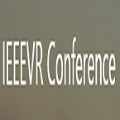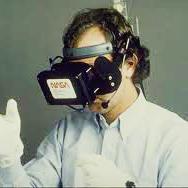This study explores the use of virtual reality (VR) as an innovative tool to enhance awareness, acceptance, and understanding of accessibility for persons with vision loss (VL). Through a VR-based workshop developed in collaboration with New York City's Department Of Transportation, participants experienced immersive simulations of VL and and related immersive mobility challenges. The methodology included pre- and post-intervention questionnaires, assessing changes in participants' knowledge, confidence, and perception. Participants included urban planners, designers, and architects. Results showed a significant increase in awareness of VL-related challenges that affect design guidelines, as well as improved confidence in addressing such challenges. Participants also expressed strong support for VR as a pedagogical tool, noting its potential for reshaping professional practices, improving capacity building, and enhancing inclusive design. The study demonstrates the effectiveness of VR as an experiential learning platform, fostering empathy and a long-term commitment to integrating VL considerations into urban design. These findings highlight the transformative potential of VR in advancing equity and accessibility in urban environments.
翻译:暂无翻译




